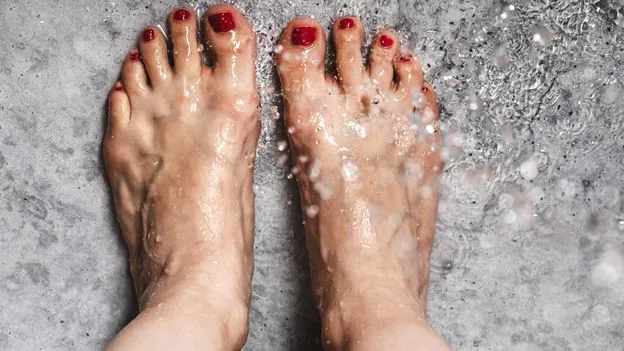
How Often Should You Really Wash Your Feet? The Surprising Truth Revealed!
2025-03-24
Author: Ming
Importance of Foot Hygiene
When it comes to shower time, many people devote a considerable amount of effort to scrubbing certain areas of their bodies, but what about those underappreciated appendages at the end of our legs? While some individuals may feel that a quick rinse in the shower suffices, experts urge that your feet deserve much more attention than they often receive.
Both the UK's National Health Service (NHS) and the US Center for Disease Control (CDC) recommend washing your feet daily with soap and water. The rationale is clear: our feet are home to over 600 sweat glands per square centimeter, creating a warm, moist environment that is a hotspot for bacteria and fungi. While sweat itself is odorless, it creates the perfect petri dish for bacteria to thrive, making proper foot hygiene not just a matter of comfort, but a crucial aspect of health.
Risks of Neglecting Foot Hygiene
According to Holly Wilkinson, a lecturer in wound healing at the University of Hull, areas between the toes are particularly susceptible to bacterial growth due to their humid nature—especially if frequently confined in socks and shoes. This can lead to common foot ailments such as athlete's foot, a fungal infection that flourishes in warm, moist settings.
Bacterial Diversity on Feet
Recent research has highlighted the significant microbial diversity that lives on our feet. A study swabbing 40 volunteers found that individuals who washed their feet twice daily had around 8,800 bacteria per square centimeter, whereas those who washed every other day had upwards of a million. However, it's essential to note that not all bacteria are harmful; some play a protective role.
Staphylococcus and Foot Odor
Staphylococcus bacteria are primarily responsible for foot odor, thanks to their ability to break down sweat into volatile fatty acids (VFAs). One particular compound, isovaleric acid, is notorious for its cheesy smell. Research indicated that the presence of Staphylococci was significant in smelly feet, showing that regular washing can be a game-changer in reducing olfactory offenses.
Foot Care for Diabetics
But foot hygiene isn't just about keeping your feet smelling fresh. A lack of proper foot care can lead to infections, particularly for those with underlying health issues like diabetes. Diabetics are at an increased risk for skin infections and ulcers, making daily foot washing not just advisable, but essential. They often have diminished sensitivity due to nerve damage, and regular foot care allows for early detection of injuries or signs of infection, which can prevent severe complications.
General Washing Recommendations
The washing habits of the general population can vary, with some experts suggesting that for those without specific health concerns, washing every couple of days may suffice to maintain healthy feet without stripping away essential moisture. However, individuals with active lifestyles, such as runners or gym-goers, need to be more vigilant about cleanliness due to sweat and friction.
Drying Matters
While soap and water are effective, how you dry your feet is equally important. Moisture trapped between the toes can lead to fungal infections; therefore, it's crucial to dry thoroughly post-wash. According to Dan Baumgardt, a GP and lecturer in neuroscience at the University of Bristol, embracing proper drying methods can significantly reduce infections.
Conclusion
In conclusion, keeping your feet clean is more than a matter of luxury or aesthetics—it's vital for overall health. Whether you're a daily swimmer or someone who simply walks every day, don't overlook your feet. Make sure you incorporate daily foot washing into your routine to keep those crucial appendages in tip-top shape!





 Brasil (PT)
Brasil (PT)
 Canada (EN)
Canada (EN)
 Chile (ES)
Chile (ES)
 Česko (CS)
Česko (CS)
 대한민국 (KO)
대한민국 (KO)
 España (ES)
España (ES)
 France (FR)
France (FR)
 Hong Kong (EN)
Hong Kong (EN)
 Italia (IT)
Italia (IT)
 日本 (JA)
日本 (JA)
 Magyarország (HU)
Magyarország (HU)
 Norge (NO)
Norge (NO)
 Polska (PL)
Polska (PL)
 Schweiz (DE)
Schweiz (DE)
 Singapore (EN)
Singapore (EN)
 Sverige (SV)
Sverige (SV)
 Suomi (FI)
Suomi (FI)
 Türkiye (TR)
Türkiye (TR)
 الإمارات العربية المتحدة (AR)
الإمارات العربية المتحدة (AR)